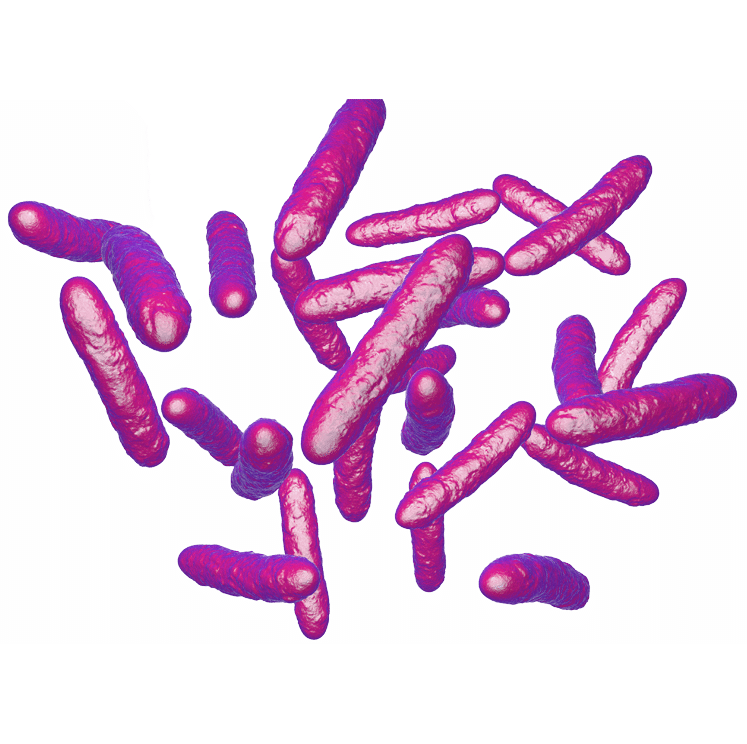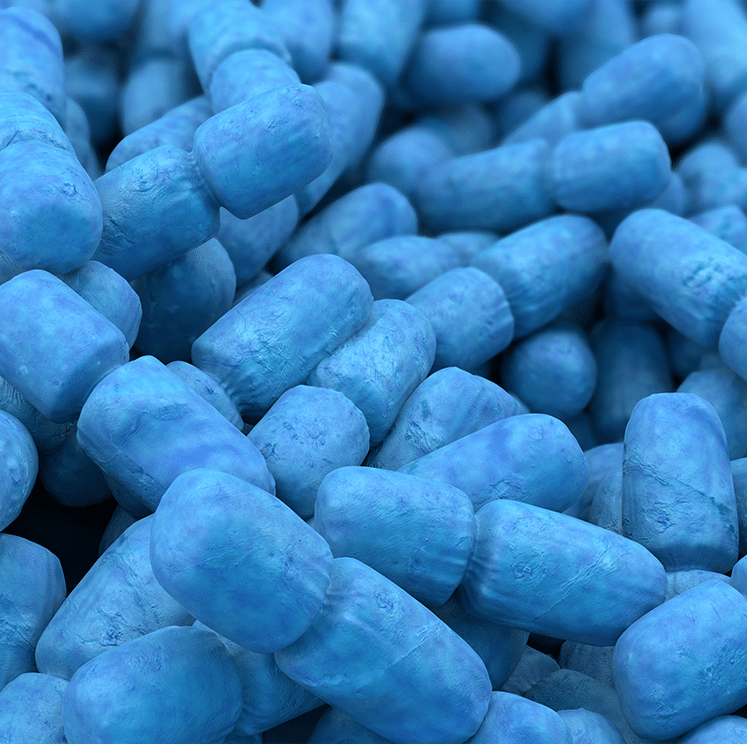Disclaimer
*These statements have not been evaluated by the Food and Drug Administration. Ingredient information is not intended to diagnose, treat, cure, or prevent any disease.
Material Name(s): Enterococcus faecium T-110, Clostridium butyricum TO-A, Bacillus subtilis TO-A
A note on nomenclature:
| Synonyms | |
| Enterococcus faecium | Prior to 1984, enterococci were members of the genus Streptococcus; thus, E. faecalis was known as Streptococcus faecalis.i |
| Bacillus subtilis | Strains designated by Gibson (1944) and Smith et al. (1946) as synonyms of Bacillus subtilis include Bacillus mesentericus, Bacillus aterrimus, Bacillus natto, etc.ii |
Bio-Three is a proprietary ingredient from Japanese company TOA, a leader in the development and manufacturer of fermented products. Bio-Three is composed of 3 specific probiotic strains: Enterococcus faecium T-110, Clostridium butyricum TO-A and Bacillus subtilis TO-A. While these strains are relatively new to the North American market, they have been widely used in hospitals and pharmacies throughout Asia since 1941. These bacterial species act in a symbiotic manner, such that each facilitates the proliferation of the others. Further each strain will yield unique metabolites which aid in physiological functions including metabolism, development and homeostasis of immunity.
- Clostridium butyricum – produces large amounts of a short chain fatty acid call butyrate which promotes immune function and tolerance. This means it both increases resistance to infections as well as reduces autoimmunity. Butyrate is also a key fuel for other healthy bacteria and also heals and repairs the gut mucosal lining. Finally, it can reduce inflammation locally in the GI tract as well as throughout the whole body because it can be absorbed into the bloodstream. There are upwards of 60 human clinical studies published on the safety and efficacy of Clostridium butyricum in both adults and in susceptible populations such as in infants and seniors.
- Enterococcus faecalis lowers the pH of the gut to make is more inhospitable to pathogenic bacteria. It also produces anti-bacterial compounds called bacteriocins that can inhibit harmful bacteria.
- Finally, Bacillus mesentericus exponentially increases the growth of bifidobacteria which are one of the most critical and beneficial classes of bacteria in the gut
Technical insights:
- Country of origin: Japan
- The bacterial strains in this product are isolated from safe sources – E. faecium and C. butyricum are isolated from human microbiome, while B. subtilis is isolated from potato skins. And cultured on various media
- Lactose media: from New Zealand and Germany
- Potato starch media: lump stalk from Japan
- No refrigeration needed, store under room temperature
- High resistance against bile acid
- Low sensitivity to drugs



